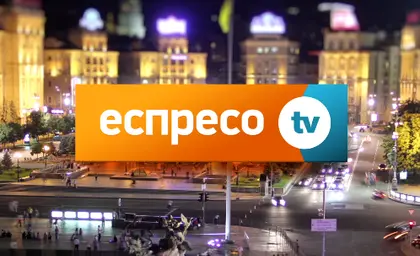Espresso TV’s editorial board members say they see a sign of “political pressure” in lawmaker’s Sergii Leshchenko request to National Anti-Corruption Bureau of Ukraine to investigate the sales of the Espresso TV shares by ex-Prime Minister Arseniy Yatsenyuk and Inna Avakova, wife of Ukraine’s Interior Minister Arsen Avakov.
On Dec. 30, Yatsenyuk and Avakova sold their shares (30 and 40 percent respectively) in Espresso TV channel to Atmosphere Entertainment Inc., a firm registered in New York and owned by Ivan Zhevago, son of Ukrainian oligarch and lawmaker Kostyantyn Zhevago.
JOIN US ON TELEGRAM
Follow our coverage of the war on the @Kyivpost_official.
Yatsenyuk bought his shares in June for a price of Hr 3.8 million (or $145,000) and sold it six months later to Zhevago for $1.5 million, making a profit of nearly 1,000 percent.
While Leshchenko said the deal raises red flags on money laundering, Espresso TV team believes that Leshchenko’s statements and the news about the change of ownership of the Espresso TV channel published on different media outlets are considered to be “a political campaign aimed at destroying the channel.”
In a statement published on Espresso TV website on Jan. 12, Atmosphere Entertainment Inc. said they “were surprised” to find out the news about the allegedly “doubtful” deal on Espresso TV channel.
“Atmosphere Entertainment, Inc. is a private American company that does not interfere in editorial decisions and is not under any politically influence in the US, Ukraine or other jurisdictions,” reads the statement. “We suspect that such news are explained by intentions to discredit our new media assets, to exert pressure on their employees, and to increase the monopoly influence of existing groups on the Ukrainian television market.”
Espresso TV co-founder and lawmaker from Yatsenyuk’s People’s Front Party Mykola Kniazhytskiy earlier told the Kyiv Post that he’s not afraid of any investigation. He said Yatsenyuk bought his share at a rate set in 2013 when Espresso TV was just in the making.
In a op-ed published on Detector Media website on Jan. 12, Kniazhytskiy also calls the deal “the transparent media sales operation in Ukraine.” He also claims that the information about the deal became public immediately and both – Yatsenyuk and Avakova are going to pay taxes to the state budget.
Commenting the deal, Yatsenyuk said in his Facebook post on Jan. 12 that he sold his shares openly “because the politician is not the best media owner.”
“I sold it to the US company and will pay millions of taxes to the Ukrainian budget,” Yatsenyuk wrote. Olga Lappo, Yatsenyuk’s spokesperson, earlier said that Yatsenyuk will now pay Hr 7 million ($249,000) in taxes to the state budget.
Ukraine’s TV channels have for years been owned by oligarchs who use them for political influence rather than running them as businesses that practice independent journalism. Ten of 11 national television channels are directly or indirectly connected to politicians and oligarchs, according to a report published by the Institute of Mass Information and Reporters Without Borders media watchdogs in September.
Otar Dovzhenko, a media expert and a lecturer at the School of Journalism at Ukrainian Catholic University, is certain that a news TV channel can’t make a profitable business in Ukraine.
“They have small share of advertising, its production is relatively expensive, the product they produce can only be used once and it is impossible to sell to other broadcasters,” Dovzhenko told the Kyiv Post.
He also said that the cost of Espresso shares might be “a purely virtual concept.”
“I assume that the real amount paid for the channel has nothing to do with the reported figures. There might be no money at all – politicians often don’t use money for their deals.”
The reason for change in media ownership has something to do with the looming 2019 elections, according to Dovzhenko.
“Espresso has always been associated with politics and political influence. It was launched for this purpose. Obviously, the change in the ownership of media assets with a rather noticeable rating (between 0.5 and 1 percent of the share which is not so bad for the news channel) a year before the election can’t be a coincidence.”
You can also highlight the text and press Ctrl + Enter




